NHGRI DIR Seminar Series Archive: 2023-24
Event Details
Note: This is an archive page. However, the Division of Intramural Research (DIR) Seminar Series is ongoing. Go to the current season.
DIR sponsors a monthly series of talks by intramural and special guest speakers celebrating genetics and genomics research. Speakers are selected by NHGRI intramural faculty and trainees and cover research topics of interest to a wide audience.
All seminars are free and open to the public. Seminar titles and other details are updated as information becomes available.
Virtual and In-Person
Video Recordings
YouTube Playlist: 2022-23 DIR Seminar Series Videos
Seminars
Legacy of the domestic dog: informing biological discovery through large-scale genomics
June 20, 2024, 2:00 - 3:00 p.m. ET
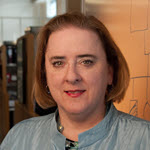 Elaine Ostrander, Ph.D.
Elaine Ostrander, Ph.D.
Chief & NIH Distinguished Investigator
Cancer Genetics and Comparative Genomics Branch
National Human Genome Research institute
Dr. Ostrander is Chief and Distinguished Senior Investigator of the Cancer Genetics and Comparative Genomics Branch at the National Human Genome Research Institute of NIH, and Head of the Section on Comparative Genetics. Her laboratory studies the canine genome and its utility as a system for informing human health and biology. She received her Ph.D. from Oregon Health Sciences University and did postdoctoral training at Harvard and U.C. Berkeley. Dr. Ostrander has published over 400 research papers and reviews, and won several awards including the Asa Mays Award, International Canine Health Lifetime Achievement Award, and the 2013 Genetics Society of America Medal. In 2019 and 2021 she was the winner of NIH Director’s Awards, and in 2020 was named the National Human Genome Research Institute Mentor of the Year. She was elected to the National Academy of Sciences in 2019. Dr. Ostrander’s current work focuses on the identification of cancer susceptibility genes in dogs, the role of genetic variants in canine behaviors, the origins of dog breeds, and genetic studies on dogs from Chernobyl.
Population Genomic Screening and Preventive Health
May 9, 2024, 2:00 - 3:00 p.m. ET
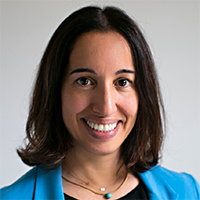
Noura Abul-Husn, M.D., Ph.D.
Vice President of Genomic Health, 23andMe
Associate Professor of Medicine, Icahn School of Medicine at Mount Sinai
Dr. Noura S. Abul-Husn, M.D., Ph.D., is an Associate Professor of Medicine at the Icahn School of Medicine at Mount Sinai, New York. Her expertise lies in genomic medicine and personalized healthcare. Dr. Abul-Husn is board certified in Internal Medicine and Medical Genetics. As a physician-scientist, she focuses on understanding the clinical impact of human genetic variation in diverse populations and advocates for the equitable implementation of genomic medicine. Dr. Abul-Husn’s scientific contributions include pioneering genome-first approaches to provide novel clinical insights and inform therapeutic discovery. She is an expert at leveraging large-scale genomic data linked to electronic health records, and her work has been published in leading journals, including Science, Cell, and the New England Journal of Medicine. As a principal investigator in the NIH/NHGRI-funded eMERGE (electronic Medical Records and Genomics) Network, she is leading efforts to integrate genomic risk information into clinical care for diverse patient populations.
Host: Neil Hanchard
From GWAS to molecular insights into islet cell dysfunction
April 4, 2024, 2:00 - 3:00 p.m. ET

Anna Gloyn, DPhil
Professor of Pediatrics and of Genetics
Stanford School of Medicine
Dr. Anna L. Gloyn is a Professor of Pediatrics & by Courtesy Genetics, Associate Chair for Basic Research (Pediatrics), Stanford School of Medicine, Stanford University, USA. The over-arching aim of Dr. Gloyn’s research is to use human genetics as a tool to understand cellular and molecular mechanisms for pancreatic beta cell failure in diabetes and related conditions. To achieve this, Dr. Gloyn has deployed several different approaches, including genomics, genome-editing of in vitro human cell models and integrative physiology which she uses to study both monogenic forms of diabetes due to rare mutations which are causal for disease through to common variants present in most of the population which increase an individual’s risk for developing diabetes. Dr. Gloyn’s goal is to capitalize on an improved mechanistic understanding of pancreatic beta cell dysfunction to improve treatment options for patients via the identification of safe and effective therapeutic targets and patient stratification. In addition, Dr. Gloyn is involved in several efforts to integrate genetic data on diabetes heterogeneity into human islet research within the Human Islet Research Network (HIRN).
Host: Francis Collins, Leland Taylor and Cassie Robertson
Butterfly Spots and Rattlesnake Tales: The Origins of Novelty
March 21, 2024, 2:00 - 3:00 p.m. ET
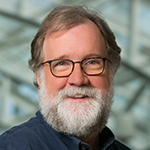
Sean Carroll, Ph.D.
Distinguished University Professor and Balo-Simon Chair of Biology, University of Maryland-College Park
Investigator, Howard Hughes Medical Institute
Sean B. Carroll, Ph.D. is an internationally recognized biologist, award-winning author, Emmy-winning film producer, and educational leader. He is currently Distinguished University Professor and Balo-Simon Chair of Biology at the University of Maryland, and an Investigator of the Howard Hughes Medical Institute. His pioneering scientific research has centered on the genes that control animal body patterns and play major roles in the evolution of animal diversity. For his scientific contributions, he has received the Benjamin Franklin Medal in Life Sciences, and been elected a member of the National Academy of Sciences, the American Philosophical Society, the European Molecular Biology Organization, as well as a Fellow of the American Academy of Arts and Sciences.
Dr. Carroll is the author of six books for general audiences and was the architect of HHMI’s filmmaking initiative to bring great stories about science and nature to broad audiences, and Head of Tangled Bank Studios until late 2023, where he served as executive producer of nearly 50 feature or educational films. The studio’s All That Breathes was the first film to win best documentary at Sundance, Cannes and London, and went on to earn an Academy Award nomination. Other notable films include the Emmy Award-winning docs The Farthest and The Serengeti Rules, the latter of which was based on his book of the same title.
Host: Shawn Burgess
Insights from Emerging Research Organisms: From Germline Regeneration to the Physics of Beauty
February 1, 2024, 2:00 - 3:00 p.m. ET

Nipam H. Patel, Ph.D.
Director, Marine Biological Laboratory
Professor, University of Chicago
Nipam H. Patel, Ph.D., is Director of the Marine Biological Laboratory (MBL) and a Professor at the University of Chicago. He is a leading scholar in modern evolutionary and developmental biology with specific focus on the evolution of body patterning and segmentation, regeneration of the germline, and structural coloration. His scientific expertise encompasses the development of novel, genetic model organisms for biological study, which can reveal much about human biology; and the application of advanced imaging technologies to probe the fundamental dynamics of living systems. In addition, Dr. Patel is an elected fellow of the American Association for the Advancement of Science and is the author of more than 130 scientific publications.
Hosts: Meru Sadhu and Mudabir Abdullah
Discovering functional connections between genotype and phenotype via comparative genomics
January 18, 2024, 2:00 - 3:00 p.m. ET
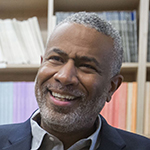
Scott Edwards, Ph.D.
Alexander Agassiz Professor of Zoology in the Museum of Comparative Zoology
Chair, Department of Organismic and Evolutionary Biology, Harvard University
Dr. Edwards is an evolutionary biologist whose main research areas focus on the evolution of life on earth and the processes that have generated biodiversity. He uses birds as models to study patterns of speciation, biogeography, evolution of the genome, and the process of adaptation. This work has exposed his lab to a wide range of questions, from the evolution of immune genes and disease resistance to how best to reconstruct the tree of life. In addition, Dr. Edwards is actively engaged in increasing diversity of the workforce in evolutionary and environmental biology.
Host: Adam Phillippy
Next generation cell therapies for the brain
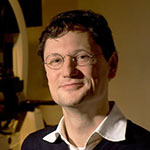
Marius Wernig, M.D., Ph.D.
Professor in the Departments of Pathology and Chemical and Systems Biology
Stanford University School of Medicine
Co-Director, Institute for Stem Cell Biology and Regenerative Medicine
Dr. Marius Wernig is Professor of Pathology and Co-Director of the Institute for Stem Cell Biology and Regenerative Medicine at Stanford University. He is interested in pluripotent stem cell biology and the molecular determinants of neural cell fate decisions. His laboratory was the first to generate functional neuronal cells reprogrammed directly from skin fibroblasts, which he termed induced neuronal (iN) cells. The lab is working on identifying the molecular mechanisms of induced lineage fate changes, the phenotypic consequences of disease-causing mutations in human neurons, and developing novel therapeutic gene targeting and cell transplantation-based strategies for a variety of monogenetic diseases.
Hosts: William Gahl, May Christine Malicdan and Marie Morimoto
Mapping the cellular determinants of genome editing systems
September 21, 2023, 2:00 - 3:00 p.m. ET
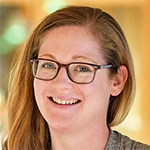
Brittany Adamson, Ph.D.
Assistant Professor
Department of Molecular Biology and the Lewis-Sigler Institute for Integrative Genomics
Princeton University
Speaker Biography: Dr. Adamson is an Assistant Professor in the Department of Molecular Biology and the Lewis-Sigler Institute for Integrative Genomics. She holds a B.S. in Biology from MIT, and a Ph.D. in Genetics and Genomics from Harvard University. She completed postdoctoral training in the Weissman lab of UCSF, with support by Damon Runyan Cancer Research Foundation. There, she pioneered new approaches to study functional genomics in human cells. She currently studies how cells respond to stress and are altered in disease states.
Hosts: Meru Sadhu and Annette Iturralde Guerrero
Please Note: The speaker requested the video recording of her seminar not be made public.
Last updated: September 19, 2024
